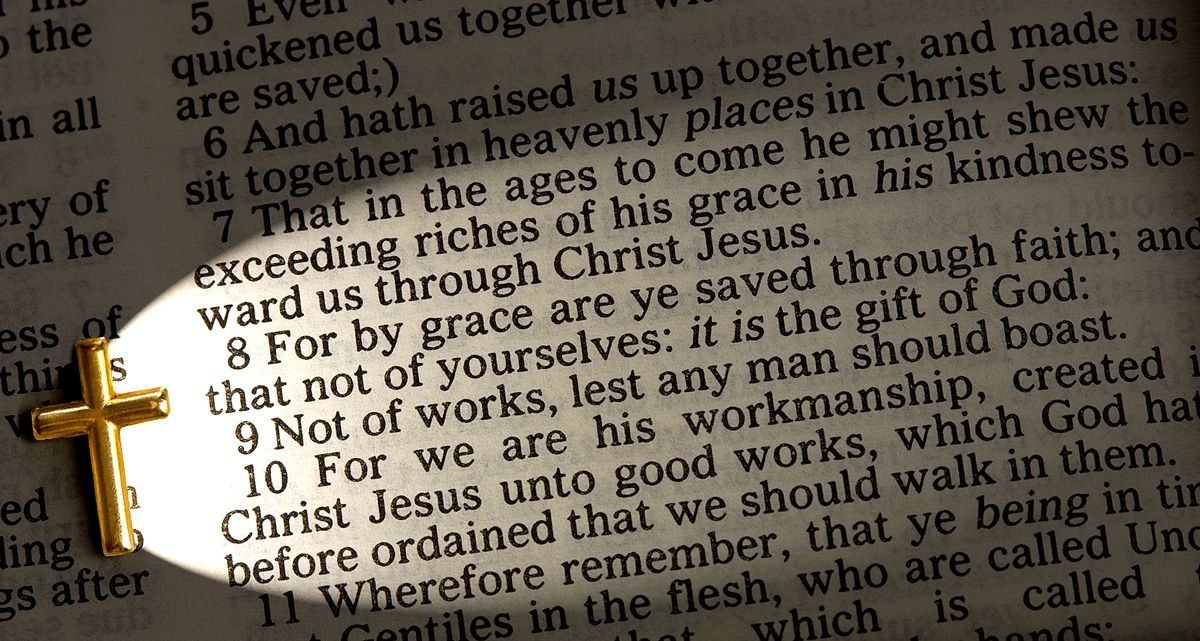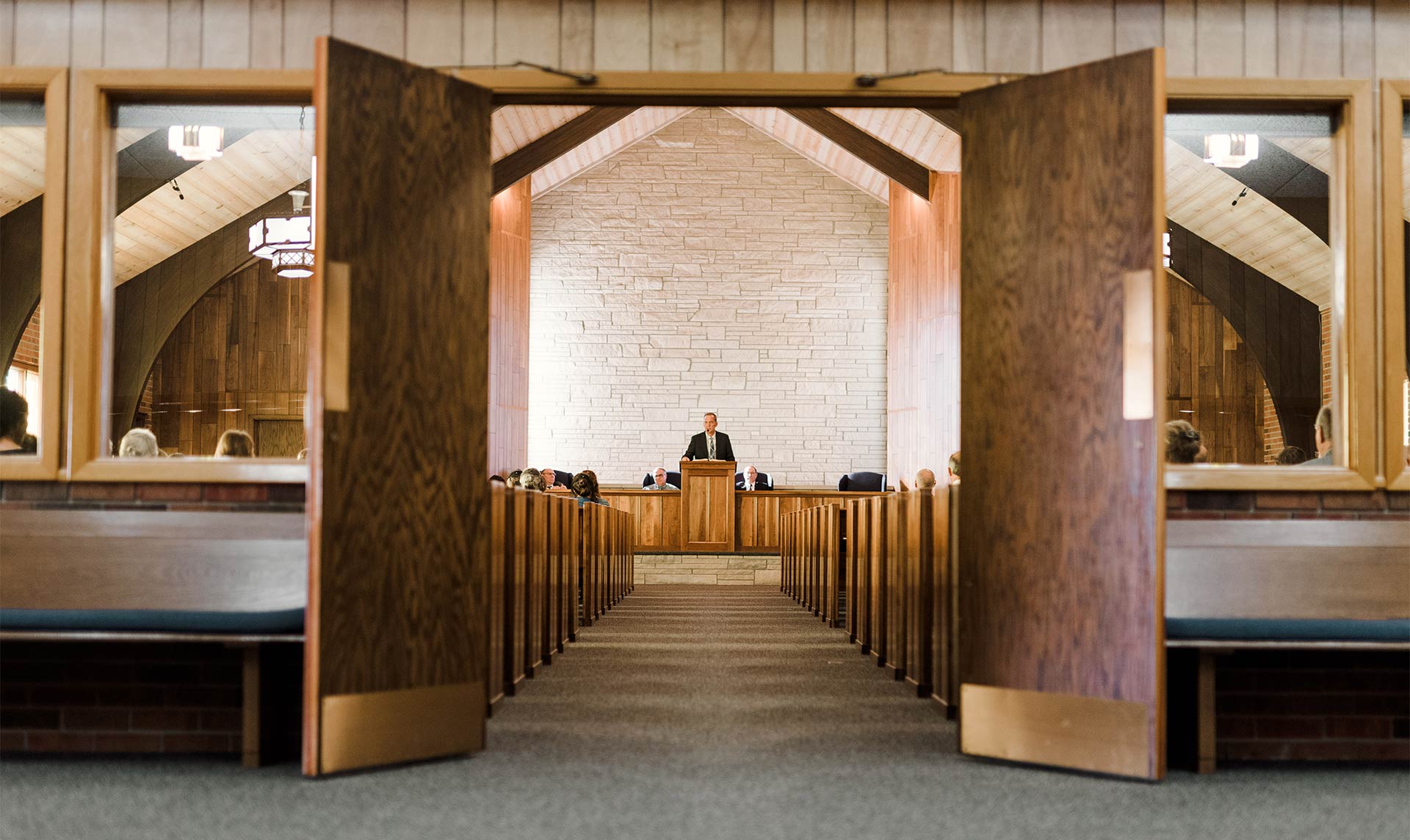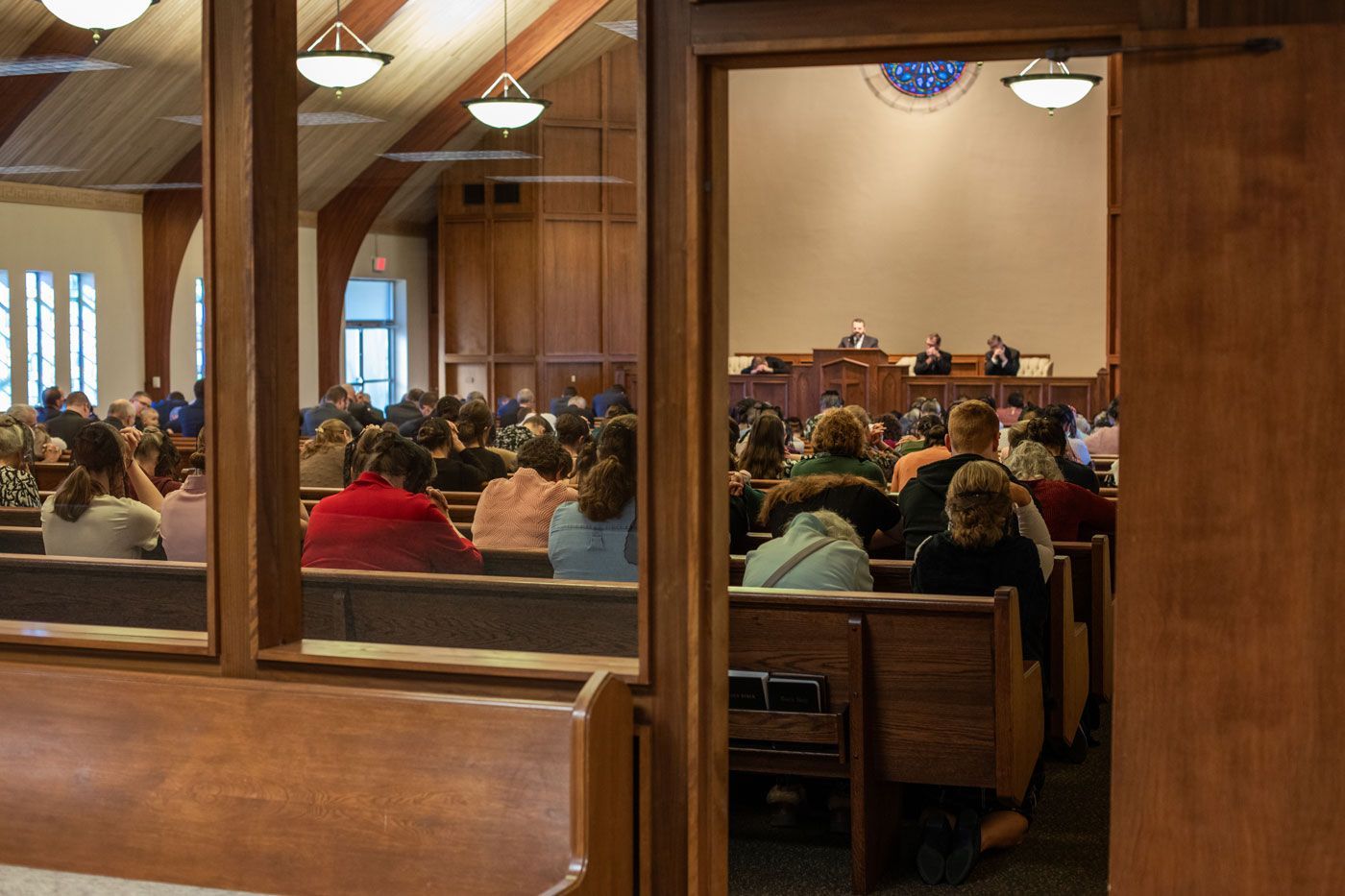Our Citizenship
“For our conversation is in Heaven, from whence also we look for the Saviour, the Lord Jesus Christ: who shall change our vile body, that it may be fashioned like unto his glorious body, according to the working whereby he is able even to subdue all things unto himself.” 1

Christ heals the sick, calms the sea, and conquers death. He feeds the hungry, confounds the learned, and brings hope to the outcast. These are but a sample of the capabilities of Jesus Christ, the king of our true, eternal home. But if our home is in the Kingdom of Heaven, how should we interact with earthly leaders and fellow citizens? Let’s first exercise our appreciation for the power of Christ’s kingdom and then we will examine God’s desire for our conduct in this world.
The Kingdom of Heaven
Throughout the gospels, Jesus offers glimpses of his kingdom. He tells us that it is not of this world.2 His kingdom does not appear visibly, but is within his disciples.3 It is like a mustard seed that starts out small but grows to be “the greatest among herbs,” a mighty tree that serves as a haven for the birds.4 He says that the kingdom of Heaven is like a hidden treasure or a costly pearl that is more valuable than anything else to the one who finds it.5 Several parables tell us of the fate of those who oppose the kingdom; in the end they will be rounded up by angels and cast into a furnace of fire.6
In order to enter the kingdom, a person must be born again.7 Jesus states that his disciples’ righteousness, derived from Christ himself, will be greater than that of the scribes and Pharisees, who considered themselves holy.8 He taught that publicans and harlots who believe in the Son of God will enter the kingdom before unbelieving chief priests and elders.9 These statements were revolutionary to Jesus’ listeners. Clearly, this kingdom and its sovereign possess wisdom and power that transcend that of the rulers—or aspiring rulers—of this world.
Take a moment to sit in awe of the power of Christ and his kingdom. Now, let’s step humbly into the reality that scripture lays out for us. As Christ-followers, we hold citizenship in the glorious, supreme, kingdom of Heaven.10 Christ’s realm is our true home. God has accepted us, despite our faults, rescued us from the power of darkness, and transferred us into the kingdom of his dear Son.11 We need not fear as we observe the interpersonal, political, and cultural tumult in this world.
Our interaction with politics on Earth
Jesus made clear in John 17 that he wanted his followers to remain in this world.12 We are ambassadors for Christ, here to reflect God’s love, grace, and truth. Being a light in a dark world sounds pleasant on the surface, but along the way we may find ourselves facing passionate ideological differences with friends and neighbors, or with those who hold positions of authority. We may appreciate laws that support godly living but must resist the temptation to compel righteousness via legislation, rather than invite righteousness by our words and actions. Scripture tells us to be subject to authority,13 to submit to kings and governors,14 and to honor the king.15 These are clear directives, yet they become complicated in the context of a modern democracy or republic. Certain rights that many countries grant their citizens would have been unfathomable to Christians living under dictatorship and oppression. Freedom of speech, the right to peacefully protest, the ability to contact a senator or representative, not to mention the right to vote, are often taken for granted and can become our expectation. Many of us as ordinary citizens have the right and potential to effect political change. As our culture and laws change in ways that may make us uneasy, we should never exercise our earthly rights with behaviors that reflect the works of the flesh, rather than the fruit of the Spirit.
---------------------------------- The continued portion is below ----------------------------------
Some of the works of the flesh listed in Galatians 5 are seditions (divisions, dissensions), strife (rivalries among individuals or groups who are attempting to gain power and influence), idolatry (often manifested in excessive admiration of individuals in the public arena), hatred, variance (quarreling, contention, debate), and emulations (trying to match or surpass another’s achievement). Even with minimal consumption of the news, we may observe how these characteristics have entwined themselves into the social/political arena. These self-centered works of the flesh are contrasted with the fruit of the spirit, which characterize Christ’s desire for our conduct—Love, joy, peace, longsuffering (patience), gentleness, goodness, faith, meekness, and temperance (self-control).16
Many believers who end up entangled in the fleshly side of politics—whether by adding logs to the fire of a heated social media comment thread or by using pejorative language in reference to those who hold differing viewpoints—begin with the benevolent intention of supporting legislation or candidates which they believe to be God-honoring. They may operate with the intent of protecting Christians from legal persecution or ridicule. As much as we cherish our comfort, the uncomfortable reality is that Jesus tells his followers to expect persecution and not to fear.17 It is reasonable to have a position on an issue, but bear in mind that an opinion on one or several matters does not necessitate embracing the entire platform of a political party, candidate, or cause. Our primary allegiance is to God, and not to a specific political platform. Do we discern which items on a platform are honoring to God and which aren’t? Do we get caught up in fleshly group thinking (us versus them)? No party or candidate will be perfect. Only Jesus meets that standard.
Let’s ask ourselves an important question. Which course of conduct might further Christ’s kingdom in the hearts of people more effectively; exhibiting works of the flesh, albeit with the intention of enacting and retaining laws that we believe to be consistent with God’s preference, or demonstrating God’s love, grace, and truth by conducting ourselves in a way that reflects the fruit of the Spirit? Scripture tells us, “They that do such things [works of the flesh] shall not inherit the kingdom of God.”18 If we choose to engage in political discourse, let us do so carefully, with a spirit of love, peace, gentleness, meekness, and temperance.
We serve an almighty king who reigns over our glorious, eternal home. May we keep our hearts focused on growing his kingdom by sharing truth in a spirit of love and peace, realizing that being an ambassador is not always comfortable. We can be encouraged by 1 Peter 2:11-12, “Dearly beloved, I beseech you as strangers and pilgrims, abstain from fleshly lusts, which war against the soul; Having your conversation honest among the Gentiles: that, whereas they speak against you as evildoers, they may by your good works, which they shall behold, glorify God in the day of visitation.”
1 Philippians 3:20-21
2 John 18:36
3 Luke 17:20-21
4 Matthew 13:31-32
5 Matthew 13:44-46
6 Matthew 13:41-42
7 John 3:3
8 Matthew 5:20
9 Matthew 21:31
10 Philippians 3:20-21
11 Colossians 1:13
12 John 17:18
13 Romans 13:1
14 1 Peter 2:13
15 1 Peter 2:17
16 Galatians 5:22-23
17 Matthew 10:16-31
18 Galatians 5:21









